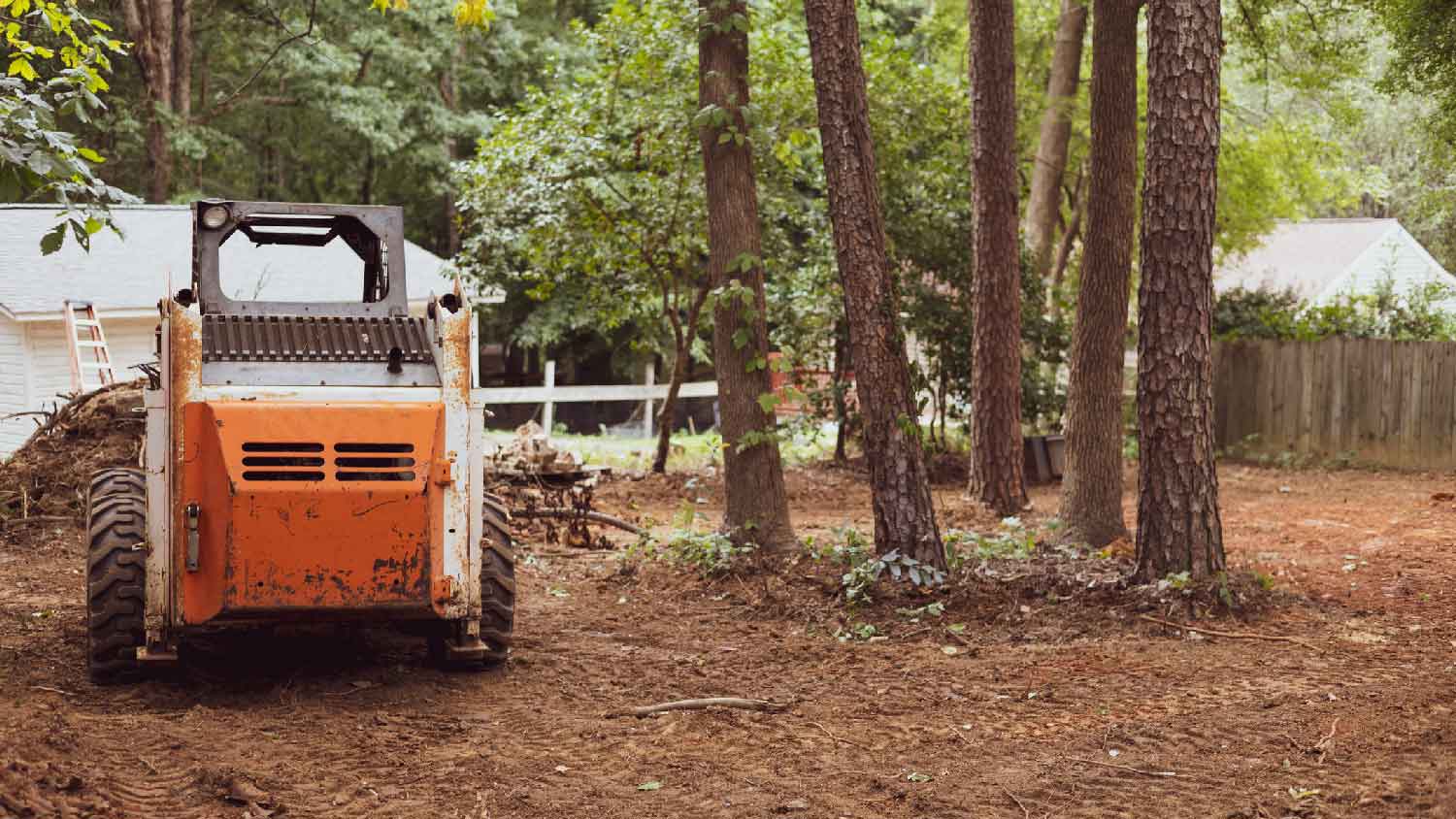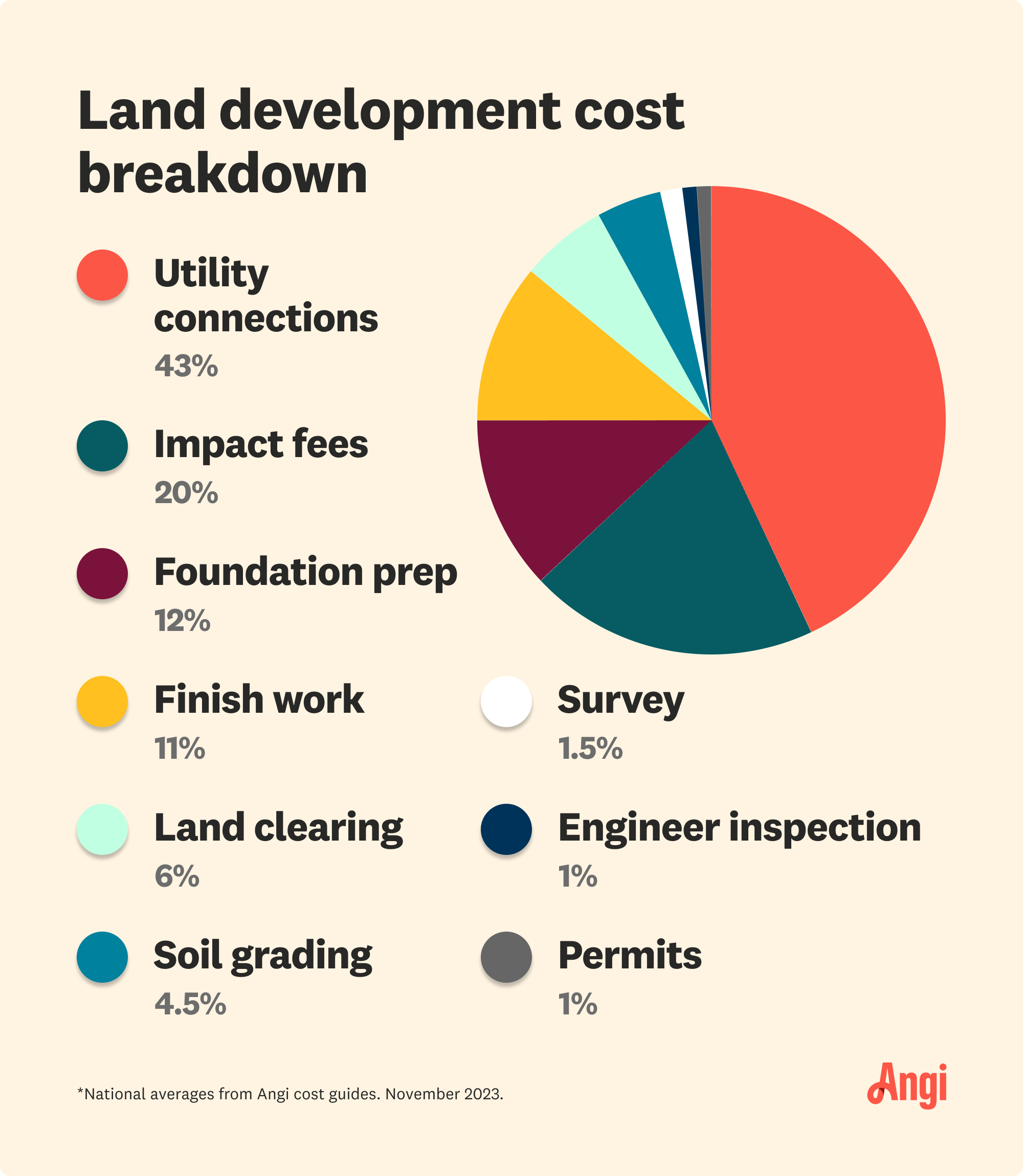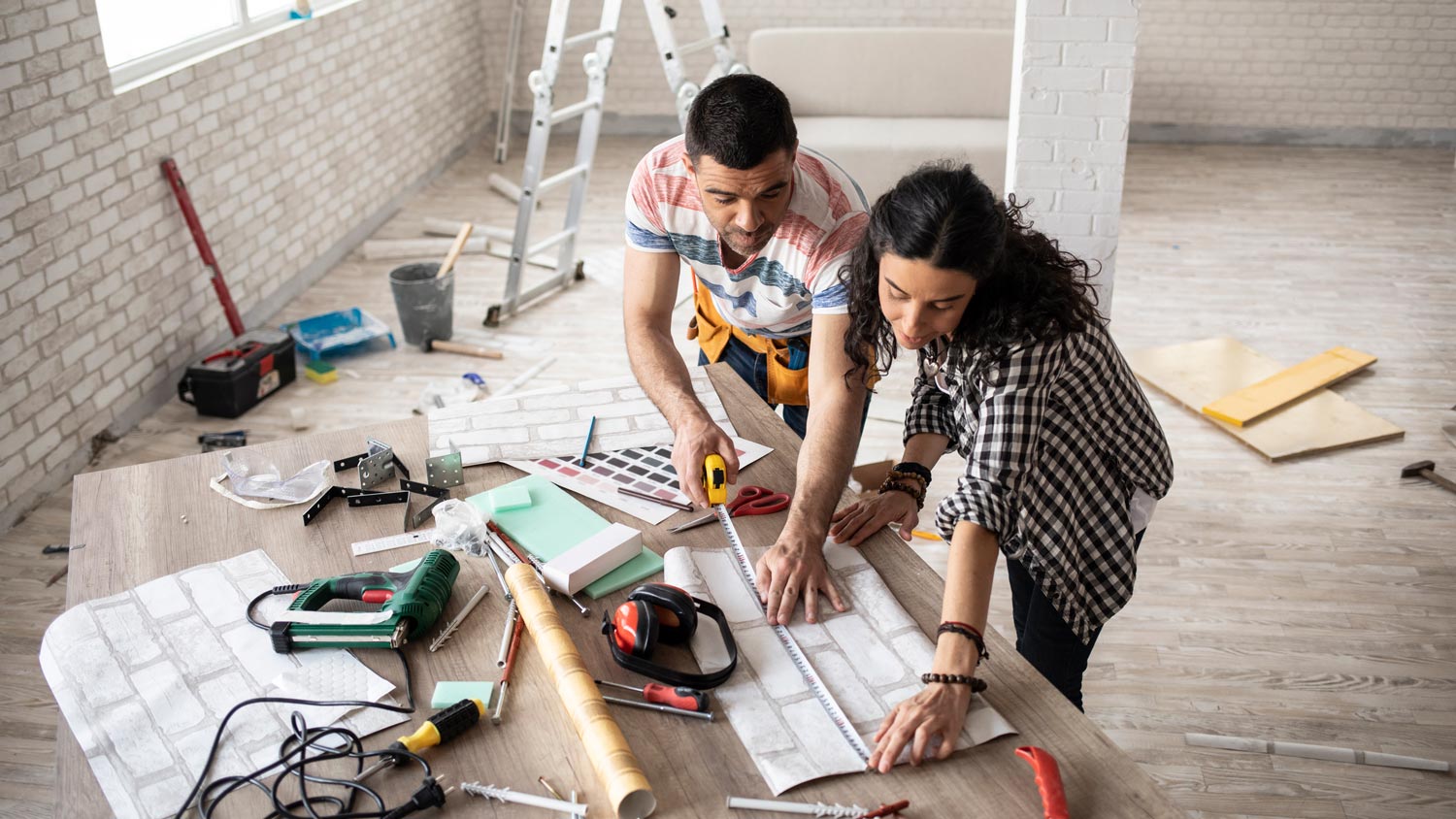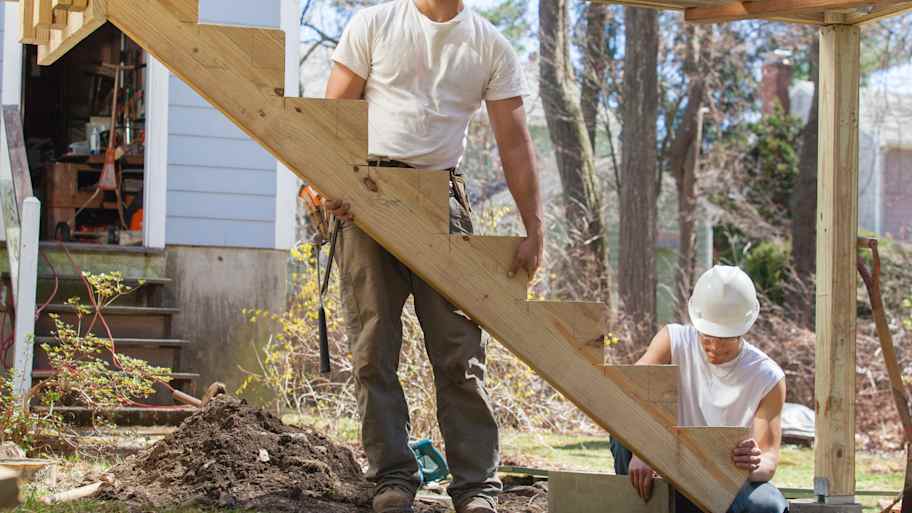
The cost to install a tongue and groove ceiling depends on the size of the space and the cost of labor. This guide can help you price out your remodel.
The average cost to develop land is $35,000, and most people pay between $25,000 to $50,000 depending on plot size, initial condition, location, and more.


Utility connections could eat up almost half your budget, especially if you’re in a rural area.
Shop for land with existing utility connections, as this could save you up to $36,000.
Impact fees are the second most expensive, especially if you’re near water or your municipality dissuades development.
Hire a local construction manager to help you map out fees and your process to avoid redundancies and unnecessary costs.
The average cost of land development is around $35,000, but prices can be as low as $2,000 or reach as high as $150,000, depending on many different factors. In most cases, you’ll pay an average of around $3 per square foot for land development, including clearing, grading, and prepping for construction. Size of Plot
The size of the plot of land you’re developing will be one of the most significant cost factors. As you can imagine, clearing, leveling, and preparing multiple acres is going to take much less time and effort than a 10,000-square-foot parcel. Site development costs average $3 per square foot, but you could pay anywhere from $0.25 to $100 per square foot, depending on your plot and what you intend to build on it.
| Plot Size | Average Development Cost |
|---|---|
| 5,000 sq ft | $15,000 |
| 10,000 sq ft | $30,000 |
| Half acre | $60,000 |
| 1 acre | $120,000 |

In some cases, you’ll need to hire a land-clearing professional to remove vegetation and large rocks from your plot as a first step in preparing for construction. The cost to clear land will fall between $1,400 and $6,200, but prices can reach up to $15,000 or more if you have a particularly large plot or if you have multiple large trees to remove in addition to smaller vegetation.

If you don’t already have a connection to the water and sewer lines in your area, you’ll have to pay a plumber to make the connection for you. The average cost to connect your plot of land to water and sewer lines is between $2,500 and $11,700. Your prices could reach up to $15,000 or more if you’re developing a plot in a rural area that requires longer lateral lines running to your structure.
Installing a septic system costs an average of $8,000, and prices can range from $500 up to $25,000 or more, depending on the size of the system you need, the quality of your soil, and the type of septic system you want.
Another important step to take to develop land is getting an electrical connection run to the build site from the wires on the street. You can expect to pay an electrician an average of $12,250 to run electricity from the road to your house, but prices can range from $3,000 up to $25,000, depending on the distance from your home to the local lines and the local cost of permits.
The process of developing land is complex, so you may need to hire additional professionals to get the job done. Below are some of the pros you might need to consider hiring, along with some standard costs.
Structural engineer: $200–$1,500
Landscape architect: $70–$200 per hour
Landscape designer: $50–$150 per hour
The majority of the cost to develop land will go toward labor, and since labor prices scale based on the local cost of living, you’re likely to see higher prices in states where the cost of living is higher, as well as in or around major metropolitan areas.
| State | Land Development Cost |
|---|---|
| California | $50,100 |
| Florida | $35,800 |
| Georgia | $31,800 |
| Illinois | $33,200 |
| Michigan | $31,800 |
| New York | $43,200 |
| North Carolina | $34,100 |
| Ohio | $32,900 |
| Pennsylvania | $33,300 |
| Texas | $32,100 |

There are some other cost factors you should consider if you want to get the most accurate estimate possible for your project.
You might not need building permits for things like clearing or leveling land, but you almost always will for running electrical service to a plot, connecting to the municipal water supply or sewers, or installing a septic system. Permits for these services will range between $200 and $1,000, and they depend on your local municipality’s fee structures.
Impact tests are often a necessary part of land development, and they gauge everything from the impact on the municipality to the impact on the environment that your project is likely to have. Impact test fees can range from around $1,000 to well over $25,000, and the price is largely dependent on the location of your property and the proximity to natural sources of water.
Some municipalities impose above-average impact survey costs to dissuade development, so building in these areas can come with prices of $100,000 or more.
Another crucial part of the land development process is getting an accurate survey for your plot. Understanding boundary lines is important to ensure you build on your land and respect easements and setback regulations, but it’s also important for determining what kind of building you can erect and whether you need impact testing. Land surveys cost an average of $500.
Unless you’re building an off-grid retreat, you’ll need to consider the cost to connect your new home to utilities. On average, you’ll pay $1,000 to install a lateral connection from nearby electrical lines, $3,000 to connect to municipal water supply lines on the street, and $3,500 to connect to municipal sewer lines, putting the total at an average of $7,500.
Prices can vary quite a bit depending on how close you are to the main lines supplying utilities to your area. Homes with a larger setback will cost more, while building in a heavily populated suburban or urban area may cost less.
You might have options for utility connections, too, which can affect prices. For example, installing a well as opposed to connecting to municipal water will cost $7,500, on average, while installing septic will cost an average of $8,000.
| Utility Connection | Price Range |
|---|---|
| Municipal electric | $750–$1,500 |
| Off-grid solar | $20,000–$100,000 |
| Municipal sewer | $1,500–$5,700 |
| Septic installation | $3,400–$11,500 |
| Municipal water | $1,000–$6,000 |
| Well installation | $5,000–$10,000 |
Unfortunately, most of the land development process must be done by professionals because municipalities require it. Unless you hold licenses yourself, you’ll have no choice but to hire certified plumbers, electricians, and septic companies to set up your site with the necessary utility connections.
Even if you were comfortable doing these things by yourself, the risk of problems, injury, and death is far too high to make it worth it, especially when working with electrical connections. Always hire a local construction manager to determine what you can do as a DIYer and what they’ll need to outsource to a certified professional.
However, it is possible to clear some of the land yourself. It’s best to handle this only if you’re dealing with smaller vegetation, but it’s technically possible to remove small trees as DIY projects, too. If you are willing and able to handle land clearing yourself, you could save anywhere between $1,400 and $6,200, on average.
Land development costs can be expensive, sometimes reaching as high as $150,000. While some costs are unavoidable, there are a few things you can do to help keep your total as low as possible.
Buy a plot in a more affordable area. One of the simplest ways to save on land development costs is just to buy land in a less expensive area. You’ll save on land costs, as well as labor costs for development and construction down the road.
Buy a plot that already has utility connections. You could save between $5,500 and $36,000 just by purchasing a plot that already has utilities set up. Look for an electrical hookup as well as connections for water supply lines and either a lateral sewer line or a septic system.
Hire a construction manager. Hiring a construction manager for land development might seem like an unnecessary expense, but they can often save time, frustration, and even money throughout the process. They have the knowledge and experience to help your project go more smoothly, making their fee a worthwhile investment.
Begin with the end in mind. Finally, start with a clear picture of the home you want to build to avoid throwing money away on development costs you don’t need. Consider hiring an architect or structural engineer to design a home and draw up different types of construction documents that work on your plot, and have them advise what kind of development work you need to do.
Home is the most important place on earth, which is why Angi has helped more than 150 million homeowners transform their houses into homes they adore. To help homeowners with their next project, Angi provides readers with the most accurate cost data and upholds strict editorial standards. We extensively research project costs to develop the pricing data you see, so you can make the best decisions for you and your home. We rely on reputable sources, including the U.S. Bureau of Labor Statistics, academic journals, market studies, and interviews with industry experts—all to ensure our prices reflect real-world projects.
Want to help us improve our cost data? Send us a recent project quote to [email protected]. Quotes and personal information will not be shared publicly.
From average costs to expert advice, get all the answers you need to get your job done.

The cost to install a tongue and groove ceiling depends on the size of the space and the cost of labor. This guide can help you price out your remodel.

Home elevator costs depend on the size and type of lift, if it needs retrofitting, and the number of floors. Our guide outlines all residential elevator costs.

Use our guide to calculate the cost to install a stair lift in your home. Prices depend on the type of stair lift, including the seat style and other advanced features.

A general contractor is an essential but costly part of a construction project. Learn how to be your own general contractor for your next home improvement project.

Stair stringers support every step you take. From wood to steel, open to closed—explore the different types, materials, and whether to DIY or hire a pro.

How much lumber you need for framing depends on several measurements. Use this calculator to estimate how to calculate lumber for framing.